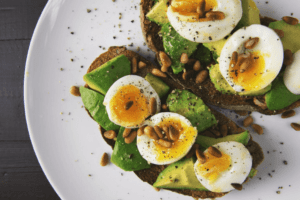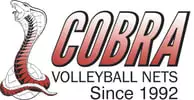Physical fitness and a healthy diet go hand in hand. Eating healthy is the key to achieving peak fitness. Eating a meal that has the right balance of all the essential nutrients provides your body the strength and energy to perform better at physically-demanding sports like volleyball, badminton, and tennis.
Whether you’re a professional athlete or play sports as a hobby, your performance on the field is directly linked to your diet. You need to make sure that your daily diet should provide enough energy to fulfill the demands of your athletic training. You also need to eat nutrients that can help you recover from muscle fatigue quickly. In addition, make sure to achieve a bodyweight that can sustain the intense nature of the sports you play.
This blog is going to be your comprehensive guide on an athlete’s diet. It will also discuss the major food groups you need to consume.
What is an Athlete’s Diet?
An athlete’s diet is similar to a balanced diet recommended for the general public. However, the amount of nutrient intake varies depending upon the nature of sports. The standard energy intake should be as follows:
- 55% carbohydrates
- 12-15 % protein
- 30% fat
Those athletes, who exercise more, need to increase their carbohydrates intake up to 70% to meet the body’s energy demands. However, nutritionists also suggest keeping body weight as an important factor when deciding a diet plan. Besides, as far as fat consumption is concerned, it’s crucial to eat fats derived from olive oils, nuts, avocado, and seeds.
Foods for High-Athletic Performance
Here are some major food groups to consume for excellent athletic performance.
Carbohydrates
Carbohydrates are considered the major fuel source for athletes. Carbs provide energy to perform strenuous exercises during training sessions. The carbohydrate intake varies based upon the intensity of workouts.
For athletes with body weight between 50-150 kg and who exercise 2-3 hours per day, experts recommend consuming 250-1200g of carbohydrates per day.
Protein
Muscle fatigue and damage are the two most common complaints by athletes. Amino acids, present abundantly in proteins, help with muscle fatigue. The standard protein consumption for athletes starts from 92g and 112g of protein per day. The intake can be increased depending upon the intensity of training.

Fat
A healthy fat intake is important for athletes to meet their energy requirements. The International Society of Sports Nutrition recommends 30-50% fat intake per day for athletes engaging in strenuous sports like football, badminton, volleyball, etc.
If you’re considering engaging in sports activities like volleyball and looking to shop for professional volleyball nets, then consider us at Cobra Net Systems. As a leading volleyball net supplier online, we manufacture custom volleyball nets.
For more information, contact us.

